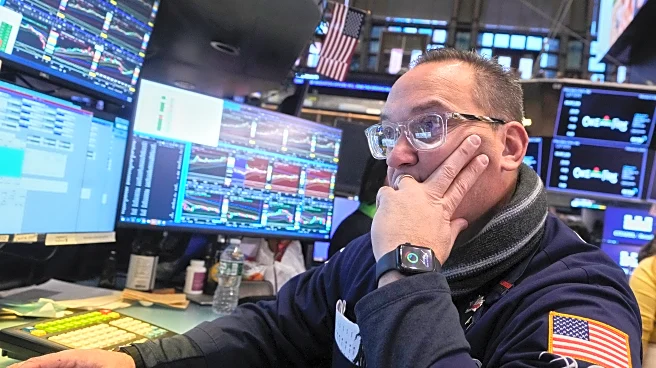Rapid Read • 8 min read
The United States is actively participating in international negotiations in Geneva to establish a global treaty aimed at addressing plastic pollution. This involvement marks a rare instance of international engagement under President Trump, who has previously withdrawn the U.S. from several global environmental commitments. The talks, involving representatives from 184 countries and over 600 organizations, focus on whether to impose caps on plastic production or to enhance recycling and reuse efforts. The U.S. State Department has expressed that engaging in these negotiations is crucial for protecting U.S. interests and businesses, as the plastics industry significantly contributes to the national economy. The U.S. supports measures to improve waste management and product design but opposes production caps, aligning with the views of the plastics industry.
AD
The U.S. participation in these talks is significant as it reflects a shift in international engagement strategy, particularly in environmental matters. The outcome of these negotiations could have substantial implications for the U.S. economy, given the plastics industry's $500 billion contribution and employment of about 1 million people. A treaty that imposes production caps could potentially increase costs and impact the industry negatively. Conversely, a focus on recycling and waste management could foster innovation and sustainability within the sector. The U.S. stance also highlights the ongoing debate between economic interests and environmental responsibilities, with industry leaders supporting the current approach while environmentalists criticize it for lacking stringent measures.
As negotiations continue, the U.S. aims to finalize a treaty text that balances environmental goals with economic interests. The outcome will likely influence future U.S. policies on plastic production and waste management. Stakeholders, including industry leaders and environmental groups, will closely monitor the developments, potentially leading to further discussions on domestic and international regulatory frameworks. The U.S. position may also affect its diplomatic relations with other countries advocating for stricter measures.
The U.S. approach to the treaty negotiations underscores broader ethical and environmental considerations. The resistance to production caps raises questions about the long-term sustainability of plastic use and the responsibility of major producers in mitigating environmental impacts. The negotiations could set a precedent for how global environmental challenges are addressed, balancing economic growth with ecological preservation.
AD
More Stories You Might Enjoy













